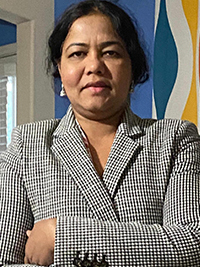
Associate Professor
Department of Gastrointestinal Medical Oncology
University of Texas MD Anderson Cancer Center
Houston, TX
IL-1 pathway blockade to enhance the efficacy and lower the toxicity of immunotherapy in pancreatic cancer.
Overview
Aim: Immunotherapy
Pancreatic ductal adenocarcinoma (PDAC) has a 5-year survival rate of only 13% in the United States. Immune checkpoint blockade (ICB) is effective against many solid tumors, but PDAC does not respond to ICB. Activation of myeloid cells in PDAC through CD40 agonists enhances innate and tumor-specific immunity. However, clinical trials of CD40 agonists with or without ICB showed only moderate efficacy. Another barrier to the clinical translation of CD40 agonists plus ICB is serious dose-limiting immune-related adverse events (irAEs). It is important to discover and target the molecules and pathways involved in innate and acquired resistance to CD40 agonists plus ICB via approaches that also prevent irAEs. Our preliminary data show that survival of orthotopic PDAC-bearing mice was significantly longer with anti-IL-1R1(IL-1 pathway blockade), CD40 agonist, and anti-PD-1 than with CD40 agonist and anti-PD-1. IL-1 induces production of IL-6, IL-8, and hepatotoxic PMN-MDSCs, which are associated with irAEs.
Hypothesis: Blocking the IL-1 pathway during agonistic CD40 antibody and anti-PD-1 antibody therapy 1) improves the efficacy of such treatment by reducing tumor-associated PMN-MDSCs and 2) reduces irAEs by hindering the production of IL-6, IL-8, and hepatotoxic PMN-MDSCs, thus improving PDAC patients’ survival.
Aim 1. Determine the effect of IL-1 pathway blockade on the therapeutic efficacy of agonistic CD40 antibody and anti-PD-1 antibody therapy against PDAC and the underlying mechanism.
Aim 2. Determine the effect of IL-1 pathway blockade on the toxicity of agonistic CD40 antibody and anti-PD-1 therapy against PDAC and the underlying mechanism.
The results will define how IL-1 induction in PDAC fosters immune resistance and are expected to show that targeting IL-1 improves anti-PD-1 and CD40 agonist therapy efficacy and lowers the associated toxicity.